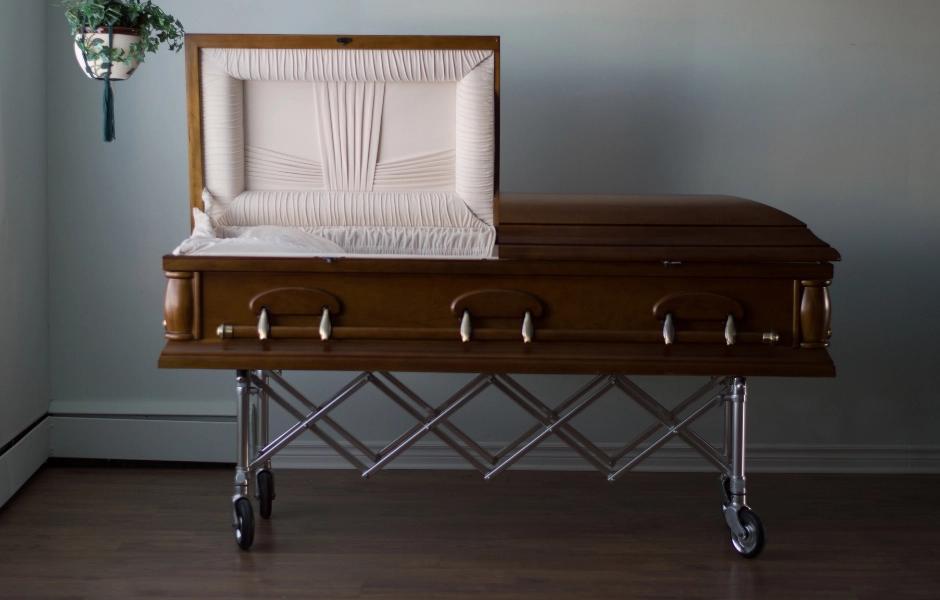You may be wondering if you should have your loved one's body embalmed. If not, but you're arranging a funeral for someone who has recently died, you might want to consider embalming the body. We've put together a complete guide to embalming to address any concerns you may have.
In this blog, we’ll be covering:
What is embalming?
The history of embalming
The process of embalming
Why do people embalm their loved ones?
Different types of embalming
How long does embalming last?
How much does embalming cost?
How to choose an embalmer
Embalming FAQs
What is embalming?
Embalming is the process of preserving a body by treating it with chemicals to prevent decomposition. The main purpose of embalming is to delay the natural process of decay and improve the appearance of a deceased person for visitation or burial.
Embalming fluid is a mixture of formaldehyde, water, and other solvents. It is injected into the blood vessels of the body to replace the blood that has drained away and to kill bacteria.
The history of embalming

The word "embalming" comes from the French "embaumer," meaning "to soak in perfume."
The first recorded instance of embalming was in ancient Egypt. The Egyptians believed that if a body was preserved, the person's spirit could live on in the afterlife. To prepare a body for mummification, they removed the internal organs and covered the outside of the body with natron, a type of salt. The body was then wrapped in linen and placed in a tomb.
Over time, the process of embalming evolved. In the Middle Ages, Europeans began to embalm their dead in order to preserve them for burial. In the 1800s, American doctor William Harvey discovered that formaldehyde could be used to prevent decomposition. This led to the development of modern embalming techniques.
The process of embalming

Embalming is a two-step process. First, the body is prepared for embalming by draining all blood from the circulatory system and replacing it with embalming fluid. This is done through incisions in the neck and groin area.
Second, the body is placed in a coffin or casket and buried. The burial process allows for the natural process of decomposition to take place, slowly breaking down the body over time.
Why do people embalm their loved ones?

There are many reasons why people choose to embalm their loved ones. Some people believe that embalming is necessary in order to prevent the body from decaying. Others believe that it is a good way to preserve the memory of their loved one.
Most people choose to embalm their loved one for aesthetic reasons. Embalming can delay the natural process of decomposition and improve the appearance of a deceased person. This can make them look more like they did when they were alive and allow for a longer viewing period after they pass away.
The different types of embalming
There are two main types of embalming:
Arterial
Cavity.
Arterial embalming involves injecting embalming fluid into the arteries of the body. This is done in order to replace the blood that has drained away and to kill bacteria. Arterial embalming is the most common type of embalming.
Cavity embalming involves injecting embalming fluid into the cavities of the body (the chest and abdominal cavity). This is done in order to fill these cavities with fluid and prevent decomposition. Cavity embalming is less common than arterial embalming.
How long does embalming last?
Embalming is not a permanent solution. The body will eventually decompose, regardless of whether or not it has been embalmed. How long the process takes depends on a number of factors, including the condition of the body, the type of embalming fluid used, and the environment in which the body is buried.
Generally speaking, embalming will last for around five to ten years. After that time, the body will start to break down and decompose.
How much does embalming cost?
The cost of embalming varies depending on the type of embalming and the location where it is performed. Generally speaking, however, the cost ranges from $400 to $1,000.
How to choose an embalmer
When it comes time to choose an embalmer, it is important to do your research. Ask around for recommendations and read online reviews. Make sure to choose a licensed professional who has experience in embalming.
The National Funeral Directors Association (NFDA) offers a directory of licensed funeral directors in the United States.
FAQs about embalming
Q: What is the difference between embalming and cremation?
A: Embalming preserves the body by treating it with chemicals. Cremation breaks down the body by burning it.
Q: Is embalming necessary?
A: No, embalming is not necessary. However, many people choose to embalm their loved ones for aesthetic reasons.
Q: Can I embalm my own loved one?
A: No, you cannot embalm your own loved one. Embalming must be performed by a licensed professional.
Summary
We don't often give much thought to whether or not to embalm during our own lifetimes. When the time comes, though, we'll need to know the specifics in order to plan a loved one's funeral.
We hope this article has helped in that regard.
If the family wishes to hold a memorial service, the decision on whether or not to embalm can be made.
The sole reason, however, could be to bring comfort and closure to the family and friends, as well as to assist them in coming to terms with their sadness.
Sometimes the mind is unable to accept the loss of a loved one. As a result, seeing the body, accepting that their loved one has passed away, and saying a final farewell can bring closure to people more easily.
If you are finding it difficult to cope with the loss of your loved one and you want their memory to live on, we provide online memorials to honor and remember their life.
